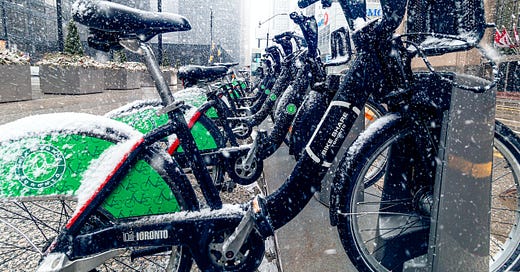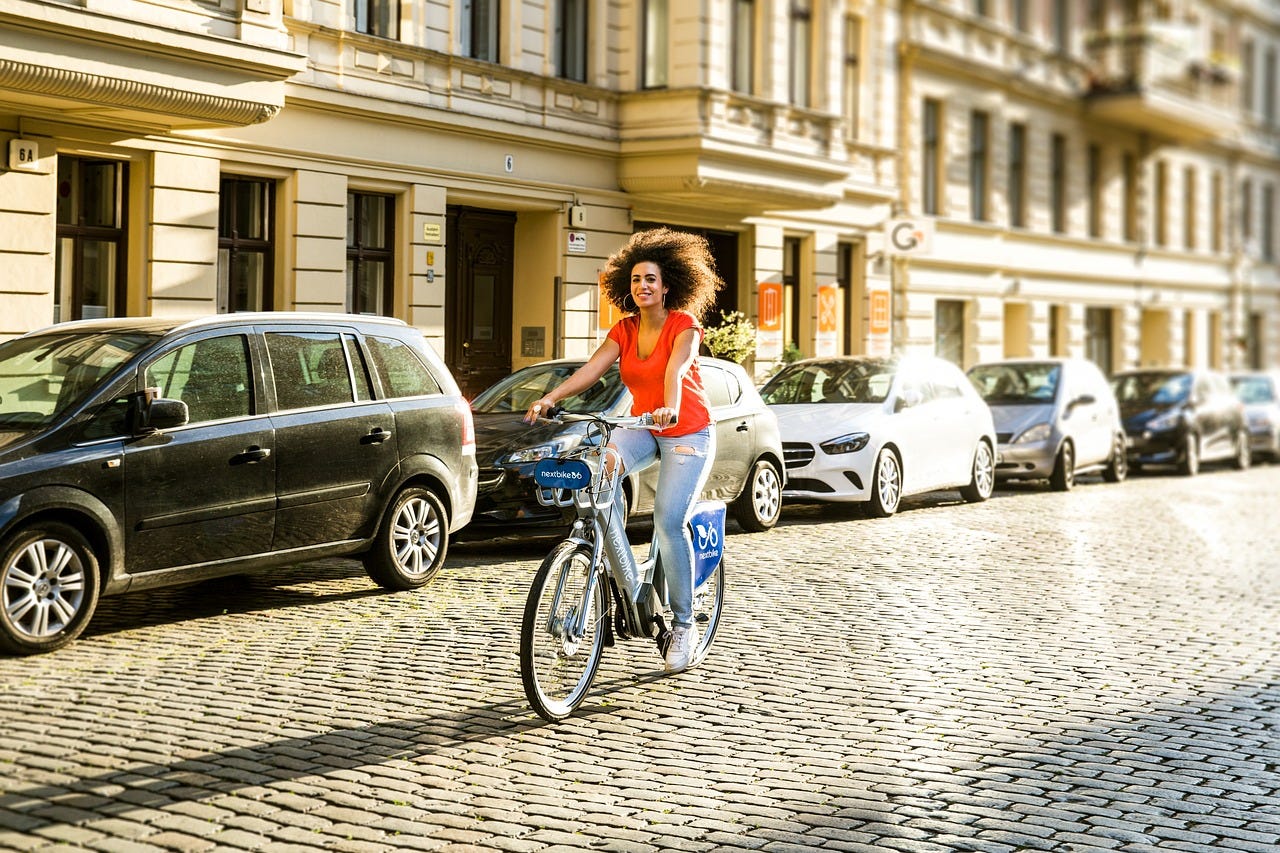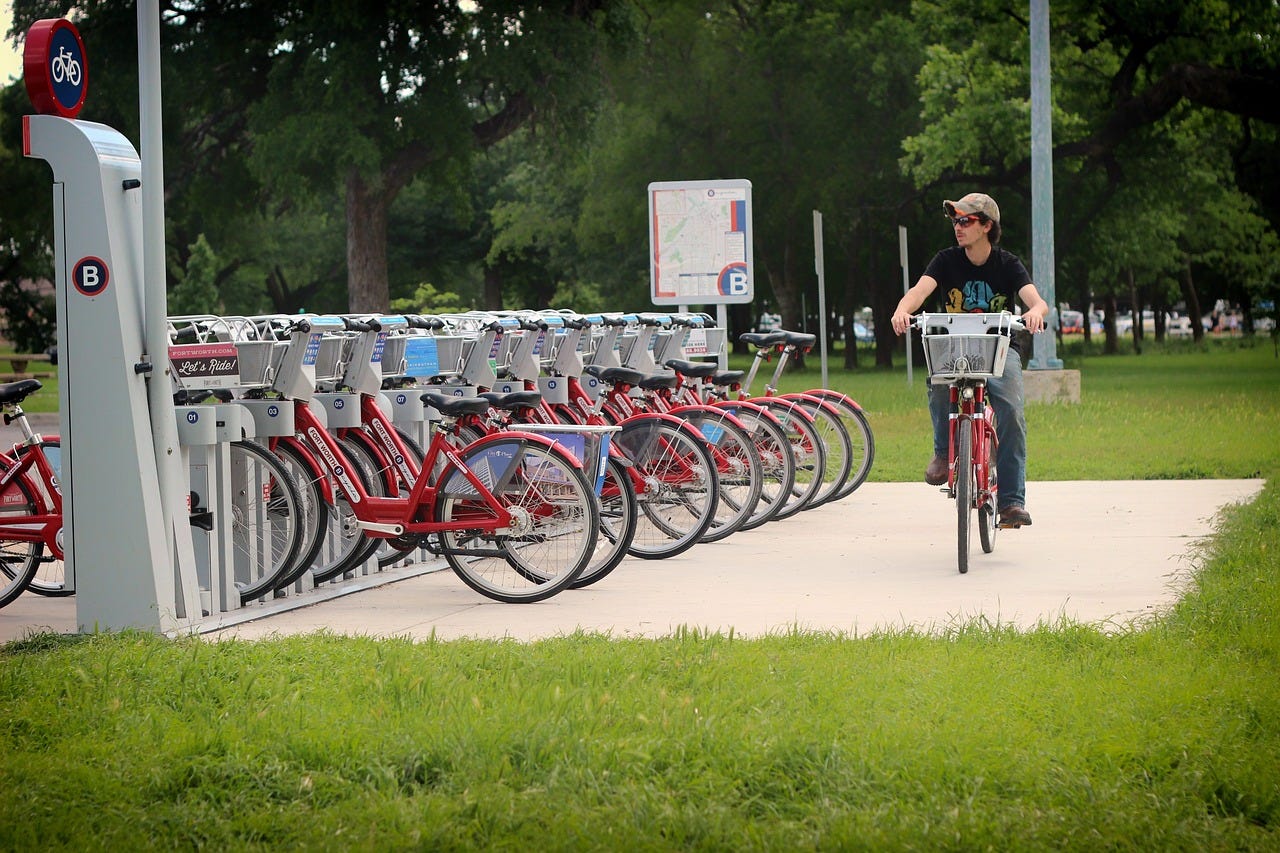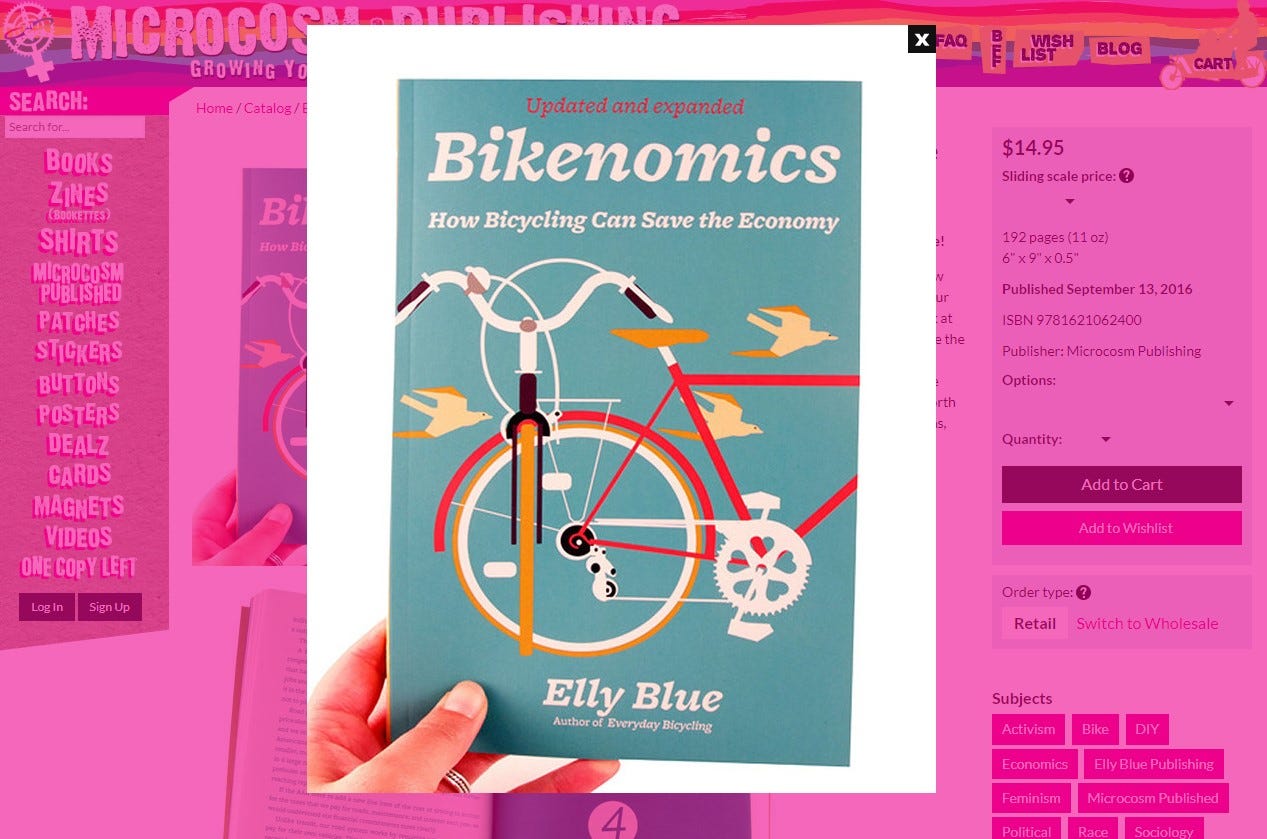Convert local business owners to bike share advocates
Once a business owner learns the reality of bikenomics, they'll be converting as much car parking to bicycle parking as possible.
Remember when dockless bike share systems appeared on street corners out of nowhere like some kind of alien invasion? They were flimsy and they were ubiquitous in cities across the world. Orange, green, yellow, blue, red, and other candy shades. After a bunch of wobbly business models fell apart, bike share is steadily coming back.
Anti-bike crusaders will never be won over to the idea of bike share. But there’s a group of skeptics who absolutely can be converted: local business owners. I’ve worked in this space for years, so I have thoughts.
What if businesses don’t want bike share stations nearby?
Schedule meetings with your local business owners and managers one at a time. Group meetings can be useful, but only after the solo meetings. Be prepared to ask questions about business concerns, and don’t attempt to solve all their problems or address their fears in this meeting. Listen, and maintain soft eyes. If at all possible, save note-taking for after you part ways to give them your undivided attention.
There’s plenty of evidence that bicycles drive positive economic traffic.
Some people will always resist bicycling as transportation, and you won’t persuade them to embrace the truth. Focus instead on the real concerns that aren’t merely dismissive of bicycling: car parking, affordability, and public safety.
You’ll find most people (business owners or not) have the same assumptions about bike share, based on anecdotes. Prepare concise responses to the major concerns, starting with those that have a cause-and-effect relationship with the business owner’s bottom line.
For example, your parking notes will reveal businesses are worried bike share stations will prevent some customers arriving by car from coming inside to spend money. Summarize the benefits of bike share in ways that directly address the community’s real and perceived concerns. You and I know there’s plenty of car parking, but it’s still a perceived problem.
Teach your local businesses why bikes are so good for business, and chances are good they’ll become your strongest allies in city hall.
Does bike share take away business from local bike shops?
Once upon a time, local bike shops and toy stores used to be the only place a person could purchase bicycles or get tips and advice about a bike-friendly lifestyle. Then big box stores gave customers access to bicycles and accessories at discount prices. Parents were more than willing to pass on the $300 bike in favor of the $100 option. (The option that, let’s face it, was more than enough to satisfy cycling demands of kid-dom.)
Now, in the era of shared mobility, the traditional bike shop owner might worry that bike share systems are competing for business. That’s understandable.
The solution isn’t to put an antiquated brick-and-mortar business model on life support. Instead, adapt to the 21st century possibilities. There are at least three ways bike share is strengthening local bike shops.
1. Maintenance and service contracts.
Bike share operators want each bike to be ridden multiple times a day, every single day. That’s a lot of wear and tear. Tires need air, brakes need adjustments, and sometimes bikes need to be moved to other stations. Bike shops are staffed by people who know how to keep bikes running in top shape. They make fantastic bike share partners.
2. One doesn’t replace the other.
Bike share systems don’t replace personal bicycles, because shared mobility isn’t ubiquitous and it’s intended for short trips. Daylong excursions, mountain trails, group touring, beach week—there will always be reasons for bike share subscribers to own their own bikes.
3. Encourages bicycling for transportation.
Most bike share operators want to change culture. We want bicycling to be an easy and convenient choice for the traveling public. Bike share gives the average person an opportunity to ride a bicycle as an adult without any special prep (clothing, snacks, bags, etc.). This helps lower the barriers to entry for the healthiest and happiest form of urban mobility.
Are bike share systems financially sustainable?
Context matters. Bike share managed by local government or non-profit agencies and operated as a utility requires substantial subsidy. If “subsidy” is a bad word, then use “outside investment.”
You just aren’t going to have a bike share business that exists simply on subscriptions or pay-per-ride fees. And that’s ok.
The financial support might be indirect from taxpayers or direct from private organizations. This is necessary to outsource elements that local government staff aren’t experienced in. Government and non-profit bike share systems are sustainable as long as financial partners remain committed to funding the program.
Bike share operated as a transportation business can be financially sustainable. It can, and does, operate in many locations throughout the country as a for-profit service. Some for-profit operations generate enough revenue to hire staff to handle all aspects of the business in each of their markets. Sponsorships and advertising are the secret to success.
Eventually, bike share will be a common feature of what planners and engineers call Mobility as a Service (MaaS). Customers will be able to open a single app to plan a trip, mix-and-match travel modes, and pay.
Auto manufacturers are also adapting their business models to the subscription economy, including adding electric bicycles as options in their shared fleets. Multimodal transportation is financially sustainable when the mobility operator is customer-focused rather than trend-focused.
Bike share means business.
Be sure to check out Elly Blue’s excellent book, Bikenomics: How Bicycling Can Save the Economy.







